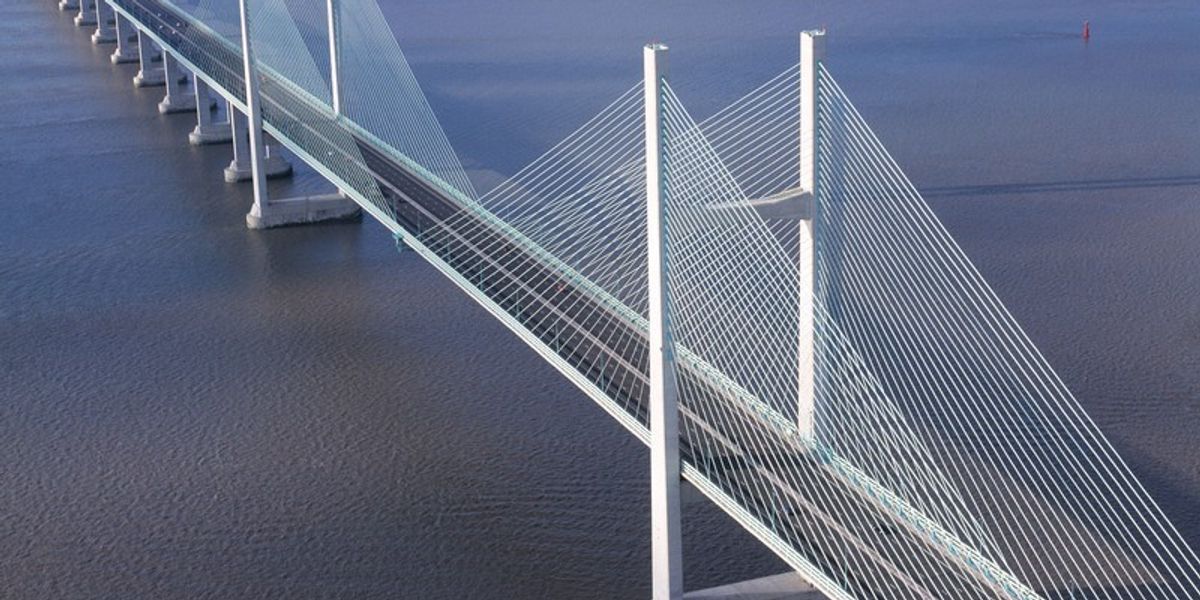Drivers have been warned the M48 Severn Bridge has been forced to close in both directions due to strong winds, with thousands of motorists being diverted to alternative routes.
Due to the weather impacting routes, National Highways has implemented the closure between Junction 1 (Aust) and Junction 2 (Chepstow) as gusting winds make travel hazardous across the Severn Estuary.
Drivers are now being advised to use the M4 Prince of Wales Bridge as the main alternative route with National Highways stating the closure could last the majority of the day.
The closure is expected to impact thousands of drivers who regularly use this vital connection between England and Wales.
Do you have a story you’d like to share? Get in touch by emailingmotoring@gbnews.uk
During windier weather the bridge shuts on both sides
NATIONAL HIGHWAYS
The M48 Severn Bridge, built in the 1960s, consists of four separate structures, the Aust Viaduct, the Severn Bridge, the Beachley Viaduct and the Wye Bridge. The 13-mile-long motorway which crosses the Severn near Chepstow, Monmouthshire, links England with Wales.
Due to the road surface on the M48 notably being more narrow than a typical motorway, it faces more challenges during adverse weather conditions.
National Highways explained that while the closure may seem unnecessary when wind doesn’t feel strong at ground level, their decisions are based on “dedicated forecasts and monitoring equipment on the bridge itself”.
The agency argued that these measurements are more accurate than online forecasts or wind speeds measured in neighbouring communities.
The M48 Severn Bridge is particularly susceptible to wind-related closures due to its older design, which lacks the protective barriers found on its newer counterpart.
However the M4 Prince of Wales Bridge, opened in 1996, features special barriers that effectively reduce the impact of strong gusts across the estuary.
During windy conditions, the Severn Estuary can funnel powerful gusts across both bridges, creating hazardous conditions for traffic.
National Highways previously managed wind-related risks by filtering vulnerable westbound traffic, including lorries, motorbikes, and high-sided vehicles.
But this practice was discontinued in late 2019 due to safety concerns for traffic officers who had to work in dangerous conditions of high wind, poor weather, and low visibility.
Following a review in 2022, the agency decided to implement full bridge closures instead of filtering traffic when the wind gets too strong.
The M48 Severn Bridge is closed to all traffic when wind gusts exceed 40 knots (46mph), remaining shut until speeds drop below this threshold.
When wind speeds reach 30 knots, a 40mph speed limit is put in place as an initial safety measure. At 35 knots, leeward lanes are closed with red X signs to further protect motorists. In extreme conditions, when wind speeds surpass 70 knots (80mph), both the M48 Severn Bridge and M4 Prince of Wales Bridge are forced to close.
LATEST DEVELOPMENTS:
The bridge has a weaker structure making it more likely to be impacted by strong winds
NATIONAL HIGHWAYS
For drivers needing to travel between England and Wales during severe conditions, National Highways has established a longer alternative route. This diversion takes drivers via the M5, M50, A40 and A449.

